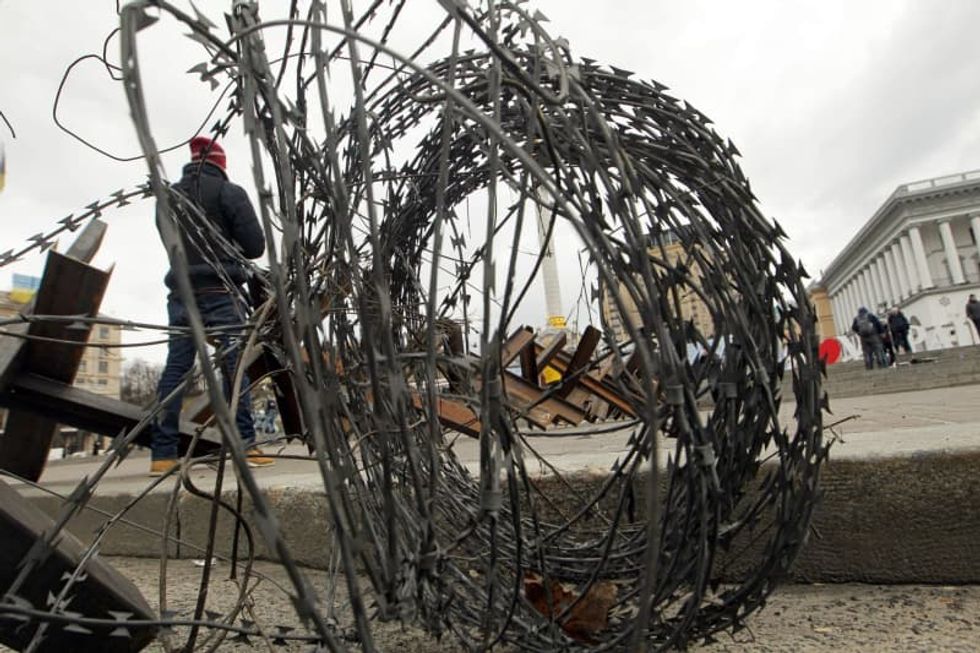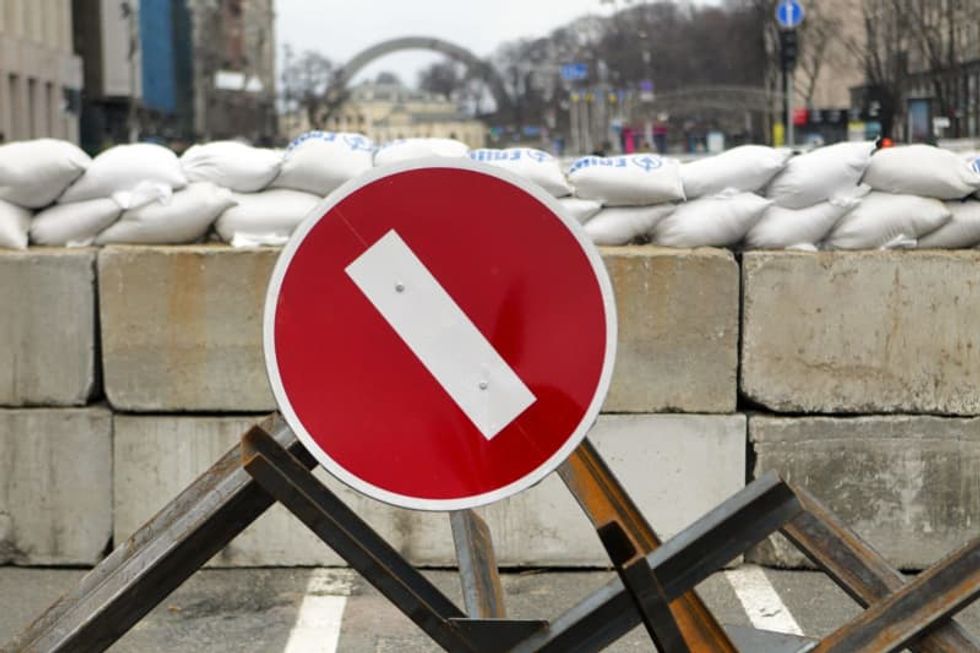

The Russian invasion of Ukraine has already caused $119 billion in damages, Ukrainian Deputy Economy Minister Denys Kudin said on Friday as the fighting showed no sign of ending, with Ukrainian forces fighting to halt Russian efforts to take key cities.
Speaking to the Ukrinform news agency, Kudin said the figure is climbing every day, noting that it counts both direct damages and indirect ones, like loss of business.
Although the number cannot be independently verified, it put a concrete figure on the costs after more than two weeks of fighting that have left hundreds dead, prompted a refugee crisis of Ukrainians fleeing their country, put nuclear facilities in danger and left Russia largely diplomatically and economically isolated.
Russia started the war - which it calls a 'special military operation' - because it says Ukrainian forces were committing genocide against ethnic Russians, a claim widely derided in the West. So far, Ukrainian forces have put up a better fight than most expected, but the costs are mounting, and military aid from the West seems unlikely, given fears about starting an even larger war.
However, the state of affairs has already given observers more than enough to worry about.
For example, a nuclear research centre in the eastern Ukrainian city of Kharkiv has come under renewed fire, according to the Ukrainian State Nuclear Supervisory Authority. The facility is now without power. Efforts are under way to determine the extent of the damage.
The Kharkiv Institute of Physics and Technology is home to a research reactor that runs on low-enriched uranium.
Pro-Russian separatists have also taken control of the eastern Ukrainian town of Volnovakha, according to military sources in Moscow. There was initially no confirmation from the Ukrainian side.
The troops of the "Donetsk People's Republic" had also captured four other towns and advanced a total of 6 kilometres into Ukrainian territory, Russian Defence Ministry spokesperson Igor Konashenkov said in Moscow.
The Russian army also continued its attacks and advanced a further 17 kilometres, he said.
In addition, the air bases in the western Ukrainian regional capital Ivano-Frankivsk and in Lutsk in the north-west of the country had been put out of action with high-precision weapons, the spokesperson said.
In total, more than 3,000 objects of military infrastructure in Ukraine have been destroyed so far, it said.
Major General Konashenkov also said, according to the Russian news agency Interfax, that the ring around the besieged port city of Mariupol was being further tightened by Donetsk troops. Konashenkov had already said on Thursday that several districts of Mariupol had been taken.
Russian President Vladimir Putin added that more troops could be coming, as he hinted that Russia could be accepting help from volunteers from the Middle East.
"As you see, there are people who want to come on a voluntary basis, especially not for money, and help the people who live in the Donbass - well, you have to meet them halfway and help them move into the combat zone," Putin told a meeting of the National Security Council on Friday.
Defence Minister Sergei Shoigu said that more than 16,000 people had already come forward from the Middle East alone to fight for the "liberation movement" of the self-proclaimed Luhansk and Donetsk People's Republics.
With the danger pressing in, Ukrainian Deputy Prime Minister Iryna Vereshchuk reported the creation of new escape routes for civilians in embattled areas.
The creation of humanitarian corridors has been an ongoing issue all week, with multiple announcements of such safe passages, only for them to not work in reality because of ceasefire violations or because of mines along planned routes. They have also been controversial because Russia has offered routes leading to its territory, whereas many refugees want to head west.
"We are waiting and hoping that today this route will work," said Vereshchuk in Mariupol.
Trucks carrying aid and empty buses were heading from Zaporizhzhia towards Mariupol, she said. In the Donetsk region, an attempt is also to be made to bring people from Volnovakha to Pokrovsk. In the Kharkiv region, there will again be a corridor between the embattled small town of Izyum and Lozova.
In the Zaporizhzhia region, there will be two routes from Polohy and Enerhodar towards the regional capital. North of Kiev, there are plans to bring people from four places towards Kiev. From three villages in the north-western Kiev region, buses are to take refugees west, to Zhytomyr.
Citing dangers linked to the war in Ukraine, Russian officials said they will keep several airports in the south closed until March 20.
Additionally, Russia has requested a UN Security Council meeting to consider allegations that the United States is developing biological weapons in Ukraine, which Washington has dismissed as "absurd."
Russia has generally slammed Western support for Ukraine and insisted it will be able to survive despite a rush of sanctions in the last week, which have only been exacerbated by the decisions of multiple Western businesses to cease operations in Russia.





